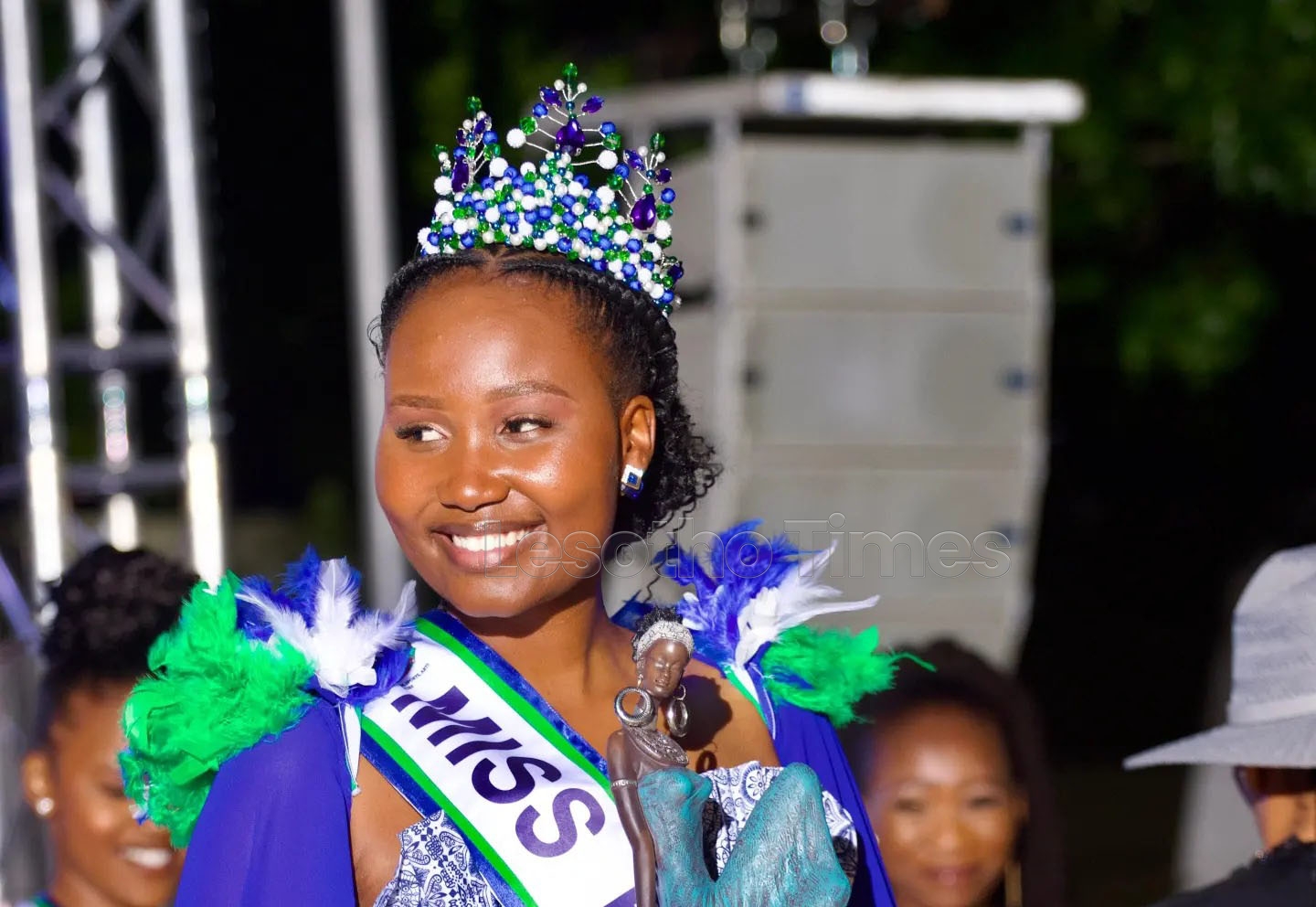Seithati Motsoeneng
IN celebration of Lesotho’s 200-year anniversary, the Beauty Pageant Association of Lesotho, in collaboration with the Ministry of Tourism, Arts, and Culture, crowned Lintle Masasa as the special Miss Bicentennial.
The competition, held at Makoanyane Square on Tuesday night, saw nine beauty queens vying for the coveted title.
But it was Ms Masasa, a 25-year-old former Miss Lesotho 2022, who was ultimately crowned Queen of Basotho’s Bicentennial. Notably, she was the first Miss Lesotho to have been a teenage mother, breaking barriers in the pageantry world.
Unlike traditional pageants that often exclude mothers and married women from participating, Miss Bicentennial welcomed all women, regardless of their personal circumstances. This inclusive approach set the competition apart and reflected a celebration of diversity and resilience.
Ms Masasa, as the grand prize winner, walked away with M20 000 in cash, while the other competitors were awarded M1000 each for their participation.
Speaking to Lesotho Times, Tlali Tlali, organiser of the Beauty Pageant Association of Lesotho, said they were approached by the Ministry of Tourism to come up with creative ways to celebrate Basotho’s bicentennial, which led to the creation of the Miss Bicentennial pageant.
“For this competition, we wanted to break away from the restrictions of traditional pageants and allow all girls to compete, regardless of their personal circumstances,” Mr Tlali said.
“As we celebrate 200 years of the Basotho nation, it was important to build a stronger, more resilient generation of girls for the future.”
He said the exclusion of certain women from pageants often imposed challenges on them rather than empowering them.
“By promoting inclusivity, we aim to remove the stigma from women who have lived through life’s challenges and mistakes.”
Ms Masasa, in her interview with Lesotho Times, expressed her pride in being crowned Miss Bicentennial, calling it a significant moment in her life.
“It is an honour to wear the crown that connects our country to its roots while also reflecting our current times,” Ms Masasa said.
She expressed concern that in the modern era, the Basotho people had lost touch with their cultural heritage which she said was important to reconnect with it.
“Though Lesotho has made great strides in development, we have forgotten much of our roots and adopted new cultural norms, which seem to be eroding our moral fabric. In the days of Moshoeshoe I, Basotho were united as a people. Today, unity seems to be the most challenging thing to achieve, whether in villages or workplaces.”
Through her new title, Ms Masasa said she will continue her mission of educating young Basotho children about the importance of unity and cultural heritage. She believes that by embracing their culture, the younger generation can become better leaders and build a more united nation.


